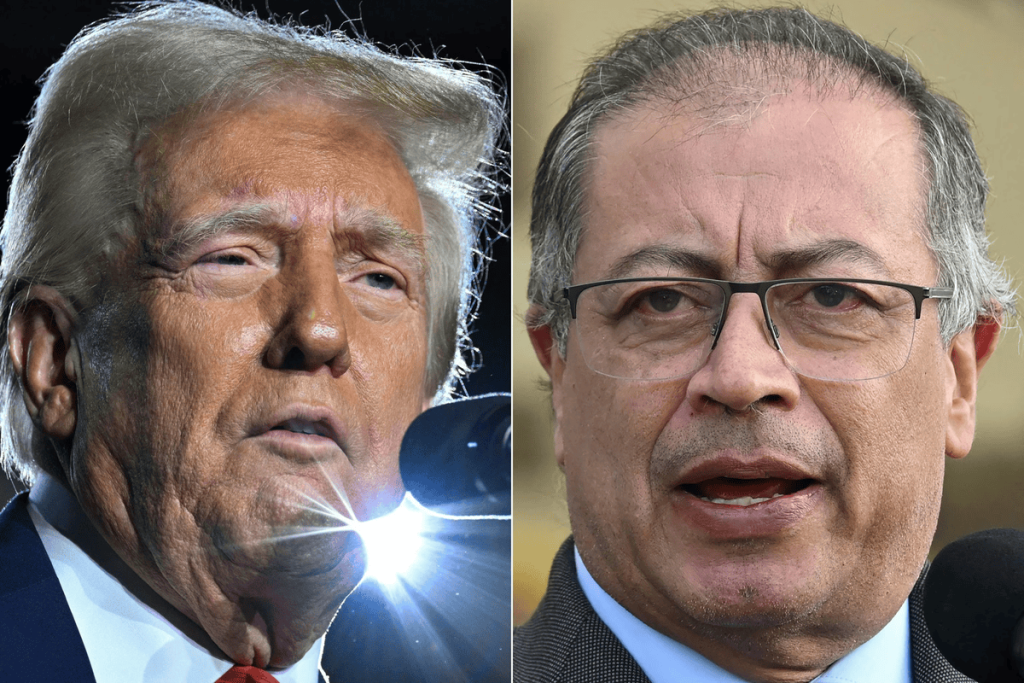The United States and Colombia have reached a deal to resume deportation flights, including those operated by U.S. military aircraft, averting a potential trade war after weeks of escalating tensions. Colombian President Gustavo Petro initially resisted the flights, prompting the White House to threaten significant economic sanctions.
Agreement Details: Colombia to Accept Deportees
Colombia has agreed to accept deportation flights for its nationals, reversing its earlier stance. The White House announced the agreement on Sunday, highlighting Colombia’s commitment to “unrestricted acceptance” of deportees.
The breakthrough came after Colombian officials engaged in high-level talks with U.S. counterparts to avoid sanctions, including hefty tariffs that could have harmed Colombia’s export-driven economy. Colombian Foreign Minister Luis Gilberto Murillo described the agreement as a necessary compromise to maintain strong relations with the U.S.
Trump Administration’s Hardline Approach
President Donald Trump’s administration took a tough stance during the negotiations, threatening to impose 25% tariffs on Colombian goods, with plans to increase the rate to 50% if the impasse continued. Additional measures included the potential suspension of visas for Colombian officials and heightened inspections of Colombian exports entering the U.S.

President Trump hailed the agreement as a victory for his administration’s strict immigration policies, stating, “This deal ensures the safety of Americans and demonstrates our commitment to secure borders.”
What Does the US Import from Colombia?
The U.S. relies heavily on several key imports from Colombia. Apart from coffee, which is a staple in many American households, Colombia also exports significant quantities of crude oil, textiles, bananas, and flowers. The U.S.-Colombia Free Trade Agreement of 2006 has facilitated robust trade between the two countries, making any disruption a cause for concern for businesses and consumers on both sides.
Travel Ban Colombia: Immigration Crackdown Intensifies
The dispute with Colombia also drew comparisons to similar incidents involving Mexico and Brazil. Both nations have resisted U.S. deportation flights under Trump’s administration, citing concerns over the treatment of migrants. In one instance, Brazil condemned the “degrading treatment” of deportees on a U.S. charter flight, with some passengers alleging mistreatment by U.S. officials.
As part of his broader immigration crackdown, Trump declared illegal immigration a national emergency upon taking office, with a focus on expediting deportations. The use of U.S. military aircraft to transport deportees marked a departure from traditional civilian charter flights, sparking outrage in Colombia and other Latin American nations.
Colombia’s Response To The Threats
While the immediate crisis was resolved, the incident underscored the fragility of U.S.-Colombia relations. President Gustavo Petro’s initial defiance and subsequent concession highlighted the challenges Latin American nations face in balancing their domestic priorities with U.S. demands.
Colombia’s willingness to accept deportees, including those on military flights, demonstrated the economic leverage the U.S. holds over its trade partners. However, Petro’s emphasis on treating migrants with dignity resonated with many in Colombia and the broader Latin American community, positioning him as a vocal advocate for migrant rights.
The agreement may ease immediate tensions but exposes underlying challenges in U.S.-Colombia relations. While the deal prevents a Colombia deportation conflict is still up on the table, it raises questions about the long-term impact on bilateral cooperation and regional diplomacy.


